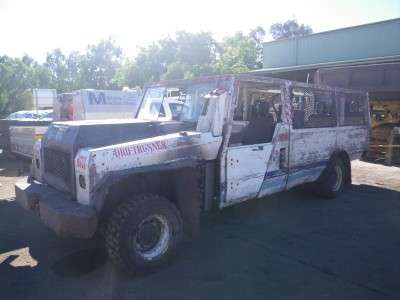Aiming to improve the air quality in underground mines

Reducing diesel particulate matter (DPM) exposure to miners in underground coalmines will be a step closer to reality with the awarding of a research grant to engineers from Monash University.
The $275,000 grant from the Australian Coal Association Research Programme (ACARP) goes to a multi-disciplinary team from the Maintenance Technology Institute (MTI), the Laboratory for Turbulence Research in Aerospace and Combustion (LTRAC) and the Australian Pulp and Paper Institute (APPI).
The grant will allow them to collaborate with leading industry original equipment manufacturers and mine site personnel as part of a broader long-term strategy to minimise DPM emissions in the mining industry.
Joint project leader Associate Professor Damon Honnery said it was important to find a way to reduce miners exposure to DPM which is both effective and cost efficient.
"DPM has recently been classified as a Group 1 carcinogen by the World Health Organisation, and is a significant problem for operators of underground coalmines," Associate Professor Honnery said.
"Diesel powered vehicles are widely used for underground mine work and are generally fitted with diesel particulate filters (DPFs) to reduce particulate emissions which have very limited service life - typically around one or two shifts - resulting in excessive costs and ineffective control of DPM."
The new project will complement an earlier ACARP project by the team that focussed on improving the service life of DPFs used in underground coalmines, which found reconditioned filters could be reused up to five times without compromising filter integrity or DPM filtration efficiency.
Fellow Project leader Dr Daya Dayawansa said while the earlier results offer a viable short-term solution to the DPM problem, a medium-term solution requires the careful examination and possible redesign of the entire exhaust conditioning system, in combination with improved diesel particulate filters.
Ultimately, the researchers believe that many diesel engines used in underground mining could be replaced by electric motors, despite the stringent regulations relating to electric systems in the potentially explosive underground atmosphere.
"While filter use will continue to reduce the impact of DPM emission in underground mines, the only truly effective long term solution is to remove the source from the mines altogether. Working with our partners, we hope to achieve this through the development of electric powered vehicles," Dr Dayawansa said.
The research team consists of Dr Dayawansa and Paul Curcio from MTI, Associate Professor Honnery and Varun Rao from LTRAC and Scot Sharman and Professor Gil Garnier from APPI.
More information: A project report relating to improved diesel particulate filter life is available online: www.acarp.com.au/abstracts.aspx?repId=C21017
Provided by Monash University


















